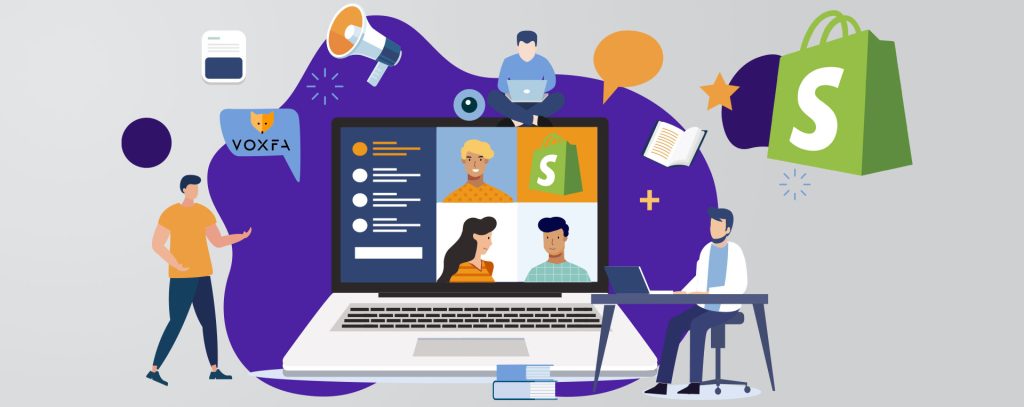
The importance of personalization in e-commerce cannot be overstated. Customers are no longer satisfied with a one-size-fits-all approach to shopping, they want experiences tailored to their individual needs and preferences. As a result, businesses must focus on providing personalized experiences to their customers if they want to stay competitive in the market.
Shopify, being one of the most popular e-commerce platforms, offers various features that enable businesses to personalize their online stores. In this blog post, we’ll discuss five ways to personalize your Shopify store to improve customer experience.
Use Personalized Product Recommendations
One of the most effective ways to personalize your Shopify store is to use personalized product recommendations. By analyzing the customer’s browsing and purchase history, Shopify can suggest products that are most relevant to them. This helps customers discover products that they might not have found otherwise, and also helps increase average order value by suggesting complementary products.
To implement personalized product recommendations on your Shopify store, you can use apps like LimeSpot or Personalizer. These apps use machine learning algorithms to analyze customer data and make product recommendations based on their browsing history and purchase behavior.
Customize Your Homepage
Your homepage is often the first point of contact for customers visiting your Shopify store. As such, it’s important to make a good impression and provide a personalized experience. You can customize your homepage to show different content based on the customer’s location, browsing history, or other preferences.
For example, you can use a geo-location app like Geolocation to show customers products that are most relevant to their region. You can also use apps like Bold Brain or LimeSpot to personalize the homepage based on the customer’s browsing history and purchase behavior.
Personalize Your Email Marketing
Email marketing is a powerful tool for driving sales and building customer loyalty. However, generic emails that aren’t personalized to the customer’s interests and preferences are unlikely to be effective. To improve the effectiveness of your email marketing campaigns, you should personalize your emails based on the customer’s purchase history, browsing behavior, and other data points.
You can use Shopify’s built-in email marketing tool or third-party apps like Klaviyo or Omnisend to send personalized emails to your customers. These apps allow you to create email campaigns based on customer segments, behavior, and preferences.
Offer Personalized Discounts and Promotions
Discounts and promotions are a great way to incentivize customers to make a purchase. However, generic discounts that aren’t tailored to the customer’s interests and preferences are unlikely to be effective. By offering personalized discounts and promotions, you can encourage customers to make a purchase while also building loyalty.
To offer personalized discounts and promotions, you can use apps like Bold Discounts or Discount Ninja. These apps allow you to create discount codes and promotions that are tailored to the customer’s purchase behavior, browsing history, and other data points.
Use Personalized Upselling and Cross-Selling
Upselling and cross-selling are effective strategies for increasing average order value. By offering complementary products or upgrades, you can encourage customers to spend more on each purchase. However, generic upselling and cross-selling offers are unlikely to be effective.
To implement personalized upselling and cross-selling on your Shopify store, you can use apps like Bold Upsell or Personalizer. These apps use machine learning algorithms to analyze customer data and make personalized product recommendations that are most likely to result in an upsell or cross-sell.
Conclusion
Personalization is key to providing a great customer experience on your Shopify store. By using personalized product recommendations, customizing your homepage, personalizing your email marketing, offering personalized discounts and promotions, and using personalized upselling and cross-selling, you can provide a tailored shopping experience that meets the unique needs and preferences of your customers. Implementing these strategies can help you build customer loyalty, increase customer satisfaction, and ultimately drive sales.
In addition to these five strategies, there are other ways to personalize your Shopify store that you may want to consider. For example, you can use customer feedback to improve your product offerings and customer service. You can also use customer data to create targeted advertising campaigns on social media platforms like Facebook and Instagram.
It’s important to note that personalization should not come at the expense of privacy. While personalization can help improve the customer experience, it’s important to respect customer privacy and ensure that data is being collected and used in a responsible and transparent manner.
Overall, personalization is an essential component of modern e-commerce. By using the strategies outlined in this blog post, you can provide a personalized shopping experience that meets the unique needs and preferences of your customers. This can help you build customer loyalty, increase customer satisfaction, and ultimately drive sales on your Shopify store.